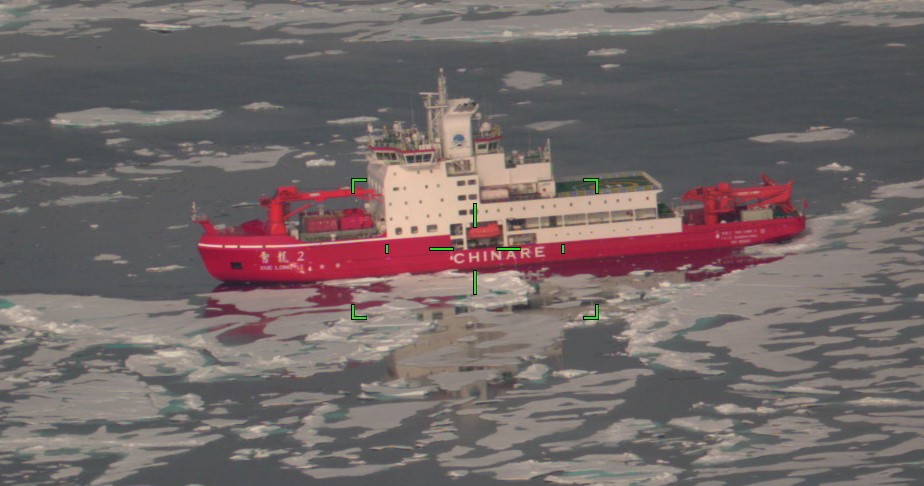The US Coast Guard recently intercepted the Chinese icebreaker and research vessel, the Xue Long 2, as it approached the United States’ extended continental shelf (ECS) north of Alaska. This incident, which occurred on July 26, 2023, involved a Coast Guard C-130J Hercules aircraft from Air Station Kodiak that responded to the vessel’s presence approximately 130 nautical miles within the ECS boundary.
According to a statement from the Coast Guard, the United States maintains exclusive rights to manage and conserve both living and non-living resources within its ECS. The ECS extends 200 nautical miles from a nation’s coastline, and incursions into this territory are taken seriously by US authorities.
The interception of the Xue Long 2 marks a rare instance of the Coast Guard addressing a Chinese maritime presence, contrasting with its more frequent responses to Russian aircraft detected near US airspace. Over recent years, China has sought to assert its status as a “near-arctic state,” a designation disputed by both the United States and its allies. The increased activity of China’s icebreaker fleet has raised concerns among US military officials, particularly regarding the dual-use capabilities of such vessels for both military and commercial purposes.
In the aftermath of the incident, Rear Adm. Bob Little, commander of the US Coast Guard Arctic District, emphasized the service’s commitment to monitoring foreign government vessel activities in US waters. He stated, “The U.S. Coast Guard, alongside partners and other agencies, vigilantly monitors and responds to foreign government vessel activity in and near U.S. waters to secure territorial integrity and defend sovereign interests against malign state activity.”
Furthermore, Cmdr. Samuel Blase, executive officer of the American icebreaker Polar Star (WAGB-10), expressed concern over the Xue Long 2’s “unannounced/seemingly unapproved presence” in US waters. In a post on LinkedIn, he highlighted that such actions fall outside international norms and could escalate tensions in the region.
The Global Times, a state-run publication in China, responded to the incident by criticizing the US for allegedly expanding its ECS by one million square kilometers. The article claimed that this expansion and the accompanying rhetoric about a “China threat” serve to justify US actions in the Arctic, portraying the US as a “villain” and a “global troublemaker.”
In a related note, the Canadian military has reported that it is actively monitoring the Xue Long 2 as it navigates Arctic waters en route from East Asia. The situation underscores the growing geopolitical tensions in the Arctic, where nations are increasingly vying for influence and access to resources.
As the US Coast Guard continues to assert its presence in the Arctic, the implications of such maritime encounters could have lasting effects on international relations and regional stability in this strategically significant area.



































































